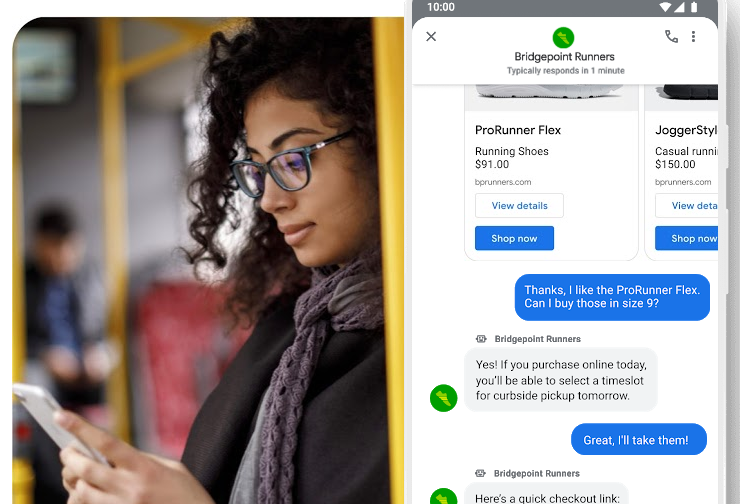Michael Power, Founder & CEO of Engage Mobile and Doug Makishima, CSMO of Summit Tech discuss the importance of interoperability across messaging platforms, and ask a fundamental question regarding RCS – does it need Apple to get on board in order to succeed..?
The short answer is No. Controversial? Great, well read on and see why we believe that, while interoperability and ubiquity are important, RCS does not necessarily need Apple to be successful.
Back in the summer at RCS World, Dublin July 2022, the MEF Open RCS Forum held a panel “Interoperability and Key Emerging Trends” ORF Interoperability Panel. There were a number of topics covered in the panel, ranging from the current state of interoperability in the industry for consumer and business communications through to the big question: What impact does Apple have by not implementing RCS.

Get the Message
RCS interoperability with iOS has subsequently garnered significant news coverage with the social impact of the ‘Blue’ Send button in iMessage in Google’s “It’s time for Apple to fix texting” blog post #getthemessage leading to a classic Apple response from Tim Cook, “buy your mom an iPhone”.
Why RCS?
RCS (Rich Communication Services) significantly upgrades the end user messaging experience with additional rich features, scrolling HD images, clickable links, video etc. RCS is now enabled on millions of devices and supported by more than 140 operators globally. It’s available in over 60 countries, with a total subscriber reach of 1.2 billion and growing every day as consumers upgrade their smart devices.
All major Android OEMs (Original Equipment Manufacturers) support RCS, including Samsung, and provide an out-of-the-box RCS messaging experience via the official Google Android Messages client.
There is no shortage of end users globally that will benefit from RCS even without Apple on board. Use cases are being published with record-breaking sales figures, compared to more classic communication channels. Open rates, interactions, and increased return on investment are a win-win for any organisation adopting an RCS campaign. For example, the recent campaign run by Orange Spain to increase sales of the latest Samsung mobile phones (Orange Spain RCS Success). RCS is the digital marketeers dream channel.
Brands should be able to send rich conversational campaigns to their customers regardless of which handset they use. While RCS is not available on Apple devices this means brands will have to use multiple channels to reach all their customers. This is an inconvenience to end-users and brands but provides an opportunity for aggregators and business messaging providers to bridge the gap…“
What does RCS need?
Operators, Google, the GSMA, and other ecosystem players have helped accelerate RCS, and we are seeing great success already BUT cross platform support must be the ultimate goal.
Brands should be able to send rich conversational campaigns to their customers regardless of which handset they use. While RCS is not available on Apple devices this means brands will have to use multiple channels to reach all their customers. This is an inconvenience to end-users and brands but provides an opportunity for aggregators and business messaging providers to bridge the gap by using RCS where available to maximise conversion and falling back to other channels where it isn’t.
Another potential push is through the European Digital Markets Act (DMA) and the European Commission. The DMA allows for interoperability between two messaging providers. Although largely focused on Person-to-Person (P2P) communications, this would open the door to discussing cross platform A2P messaging in the future.
A bit of history… Why Interoperability is Vitally Important
Mobile operators provide valuable telecommunications and connectivity services. To provide wireless cellular service, they use wireless spectrum, a globally shared resource that is licensed by governments and is often subject to oversight, regulation, taxation, and universal access rights.
Today, the three primary services offered by wireless carriers are voice calls, text and media messaging, and internet connectivity. All these services are globally interconnected and interoperable – whether the user is communicating across borders from home, or roaming to a different country, these services remain available. This level of redundancy has been highlighted recently with noticeable platform outages for both Kakao Talk and WhatsApp, leading to significant disruption given the conversational nature of their A2P use cases.
The mobile operator community upgrades networks and features from time to time. From 2G to 5G, SMS to MMS, SD voice to HD voice, Wi-Fi calling/SMS support, etc. The global mobile operator community and its trade association, the GSMA, has upgraded the SMS specs to RCS, “SMS 2.0” if you prefer, which significantly upgrades the messaging experience with additional “rich” features. Many large operators and international operator groups now support it.
To sum up…
RCS is still in the early adopter stages, but the A2P use cases coming out now are proving that RCS is the platform to beat when it comes to sales conversions. Once RCS maximises its reach, the potential for profit is off the charts.
Related Reads:
Watch RCS World 2022 in Full
The whole of the first MEF RCS World is available to watch now – enjoy the full 2 days of content exactly as it was live streamed.
MEF Members can login to get the slides
Watch Now







